
LDS Quotes on Atonement

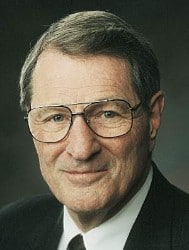
“God does not begin by asking us about our ability, but only about our availability, and if we then prove our dependability, he will increase our capability!”
| Ensign, July 1975, p. 7

“This may raise the ridiculous idea that the Fall took God by surprise and upset His plan, or else — more ridiculously still — that God planned the whole thing for conditions which, He well knew, were never going to be realised. In fact, of course, God saw the crucifixion in the act of creating the first nebula.”

“We have a strange illusion that mere time cancels sin. I have heard others, and I have heard myself, recounting cruelties and falsehoods committed in boyhood as if they were no concern of the present speaker’s, and even with laughter. But mere time does nothing either to the fact or to the guilt of sin. The guilt is washed out not by time but by repentance and the blood of Christ.”

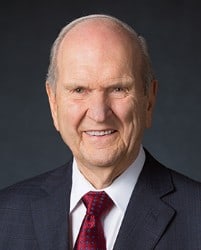
“It is doctrinally incomplete to speak of the Lord’s atoning sacrifice by shortcut phrases, such as “the Atonement” or “the enabling power of the Atonement” or “applying the Atonement” or “being strengthened by the Atonement.” These expressions present a real risk of misdirecting faith by treating the event as if it had living existence and capabilities independent of our Heavenly Father and His Son, Jesus Christ…There is no amorphous entity called “the Atonement” upon which we may call for succor, healing, forgiveness, or power. Jesus Christ is the source. Sacred terms such as Atonement and Resurrection describe what the Savior did, according to the Father’s plan, so that we may live with hope in this life and gain eternal life in the world to come. The Savior’s atoning sacrifice–the central act of all human history–is best understood and appreciated when we expressly and clearly connect it to Him.
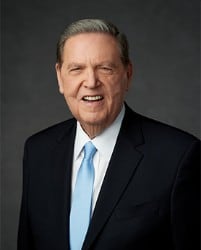
“Closely related to our own obligation to repent is the generosity of letting others do the same. . . . In this we participate in the very essence of the Atonement of Jesus Christ. . . . We don’t want God to remember our sins, so there is something fundamentally wrong in our relentlessly trying to remember others’ sins. . . . It is one of those ironies of godhood that in order to find peace, the offended as well as the offender must engage the principle of forgiveness.”
| “The Peaceable Things of the Kingdom,” Ensign, Nov. 1996, p. 82

“In that most burdensome moment of all human history, with blood appearing at every pore and an anguished cry upon His lips, Christ sought Him whom He had always sought — His Father. ‘Abba,’ he cried, ‘Papa,’ or from the lips of a younger child, something akin to ‘Daddy.’
“This is such a personal moment it almost seems sacrilege to cite it. A Son in unrelieved pain, a Father His only true source of strength, both of them staying the course, making it through the night – together.”
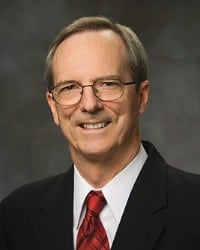
“The Atonement is our singular hope for a meaningful life.”
| The Infinite Atonement
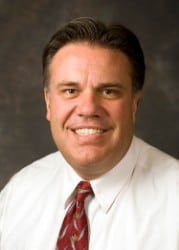
“The Atonement of Jesus Christ does not just provide a way to clean up messes; it provides the purpose and desire to avoid making more messes. The Atonement doesn’t allow us to ignore our appetites or pretend they don’t matter, but to educate and elevate them.”
| The Continuous Atonement

“If the Atonement is the foundation of our faith (and it is), then no one should be content with a casual acquaintance of this doctrine. Instead, the Atonement should be paramount in our intellectual and spiritual pursuits.”
| The Infinite Atonement
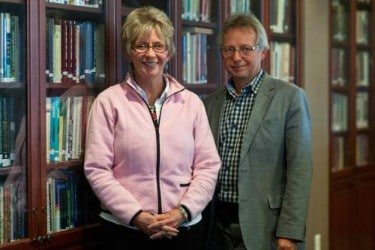
“Healing seldom comes in an instant, with one decisive choice or one divine ministration. That is a function of our mortal limitations, not the Healer’s. Divine mercy, like the Sun, ‘must dazzle gradually or every man be blind.’
“The novelist Marilynne Robinson also saw judgment in more compassionate terms. She wrote: ‘The reaction of God to us might be thought of as aesthetic rather than morally judgmental.’ God wants us to live beautiful lives.”
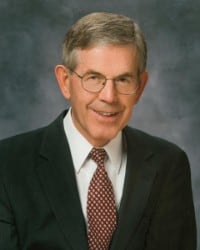
“The great Mediator asks for our repentance not because we must ‘repay’ him in exchange for his paying our debt to justice, but because repentance initiates a developmental process that, with the Savior’s help, leads us along the path to a saintly character”
| The Broken Heart [Salt Lake City: Deseret Book, 1989], 149;
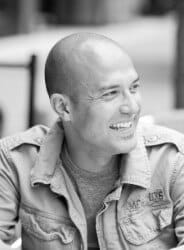
In that place between wakefulness and dreams, I found myself in a room. There were no distinguishing features in this room save the one wall covered with small index card files. They were like the ones in libraries that list titles by author or subject in alphabetical order. But these files, which stretched from floor to ceiling and seemingly endlessly in either direction, had very different headings. As I drew near the wall of files, the first to catch my attention was one that read “Girls I Have Liked”. I opened it and began flipping through the cards. I quickly shut it, shocked to realize that I recognized the names written on each one.
And then without being told, I knew exactly where I was. This lifeless room with its small files was a crude catalog system for my life. Here were written the actions of my every moment, big and small, in a detail my memory couldn’t match.
A sense of wonder and curiosity, coupled with horror, stirred within me as I began randomly opening files and exploring their content. Some brought joy and sweet memories; others a sense of shame and regret so intense that I would look over my shoulder to see if anyone was watching.
A file named “Friends” was next to one marked “Friends I Have Betrayed”.
The titles ranged from the mundane to the outright weird. “Books I Have Read”, “Lies I Have Told”, “Comfort I Have Given”, “Jokes I Have Laughed At”. Some were almost hilarious in their exactness: “Things I’ve Yelled at My Brothers.” Others I couldn’t laugh at: “Things I Have Done in My Anger”, “Things I Have Muttered Under My Breath at My Parents”. I never ceased to be surprised by the contents. Often there were many more cards than I expected. Sometimes fewer than I hoped.
I was overwhelmed by the sheer volume of the life I had lived. Could it be possible that I had the time in my 20 years to write each of these thousands or even millions of cards? But each card confirmed this truth. Each was written in my own handwriting. Each signed with my signature.
When I pulled out the file marked “Songs I Have Listened To”, I realized the files grew to contain their contents. The cards were packed tightly, and yet after two or three yards, I hadn’t found the end of the file. I shut it, shamed, not so much by the quality of music, but more by the vast amount of time I knew that file represented.
When I came to a file marked “Lustful Thoughts”, I felt a chill run through my body. I pulled the file out only an inch, not willing to test its size, and drew out a card. I shuddered at its detailed content. I felt sick to think that such a moment had been recorded.
An almost animal rage broke on me. One thought dominated my mind: “No one must ever see these cards! No one must ever see this room! I have to destroy them!” In an insane frenzy I yanked the file out. Its size didn’t matter now. I had to empty it and burn the cards. But as I took it at one end and began pounding it on the floor, I could not dislodge a single card. I became desperate and pulled out a card, only to find it as strong as steel when I tried to tear it.
Defeated and utterly helpless, I returned the file to its slot. Leaning my forehead against the wall, I let out a long, self-pitying sigh. And then I saw it. The title — “People I Have Shared the Gospel With”. The handle was brighter than those around it, newer, almost unused. I pulled on its handle and a small box not more than three inches long fell into my hands. I could count the cards it contained on one hand.
And then the tears came. I began to weep. Sobs so deep that the hurt started in my stomach and shook through me. I fell on my knees and cried. I cried out of shame, from the overwhelming shame of it all. The rows of file shelves swirled in my tear-filled eyes. No one must ever, ever know of this room. I must lock it up and hide the key.
But then as I pushed away the tears, I saw Him. No, please not Him. Not here. Oh, anyone but Jesus. I watched helplessly as He began to open the files and read the cards. I couldn’t bear to watch His response. And in the moments I could bring myself to look at His face, I saw a sorrow deeper than my own. He seemed to intuitively go to the worst boxes. Why did He have to read every one?
Finally He turned and looked at me from across the room. He looked at me with pity in His eyes. But this was a pity that didn’t anger me. I dropped my head, covered my face with my hands and began to cry again. He walked over and put His arm around me. He could have said so many things. But He didn’t say a word. He just cried with me.
Then He got up and walked back to the wall of files. Starting at one end of the room, He took out a file and, one by one, began to sign His name over mine on each card.
“No!” I shouted rushing to Him. All I could find to say was “No, no,” as I pulled the card from Him. His name shouldn’t be on these cards. But there it was, written in red so rich, so dark, so alive. The name of Jesus covered mine.
It was written with His blood.
He gently took the card back. He smiled a sad smile and began to sign the cards. I don’t think I’ll ever understand how He did it so quickly, but the next instant it seemed I heard Him close the last file and walk back to my side. He placed His hand on my shoulder and said, “It is finished.”
I stood up, and He led me out of the room. There was no lock on its door. There were still cards to be written.
| The Room

“In our life’s journey to return to and become more like our Father, we are not left alone. God has given us the necessary gifts to help us in our mortal experience…These gifts help us navigate our lives toward eternal goals. What a comfort it is to know that there is a plan providing us with a Savior, Jesus Christ. His sacrifice makes it possible for all people who comply with His gospel teachings to be forgiven through repentance. What a comfort it is to know that help is available for us to succeed in our endeavors to return to live with our Father in Heaven. What a comfort it is to know that we are not alone sailing uncharted waters as we go through life’s experiences.”
| Gifts to Help Us Navigate Our Life, April 2009 General Conference

“It is clear that this knowledge of his death must have somehow been withdrawn from him before he prayed in Gethsemane. He could not, with whatever reservation about the Father’s will, have prayed that the cup might pass and simultaneously known that it would not. That is both a logical and psychological impossibility. You see what this involves? Lest any trial incident to humanity should be lacking, the torments of hope – of suspense, anxiety- were at the last moment looser upon him – the supposed possibility that, after all, he might, he just conceivably might, be spared from the supreme horror. There was precedent. Isaac had hern spared; he too at the last moment, he also against all apparent possibility. But for this last (and erroneous) hope against hope, and the consequent tumult of the soul, the sweat of blood, perhaps he would not have been very man. To live in a fully predictable world is not to be man.”
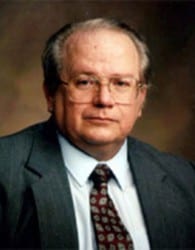
“God uses no magic wand to simply wave bad things into nonexistence. The sins that he remits, he remits by making them his own and suffering them. The pain and heartaches that he relieves, he relieves by suffering them himself. These things can be shared and absorbed, but they cannot be simply wished or waved away. They must be suffered.”
| Believing Christ: The Parable of the Bicycle and Other Good News
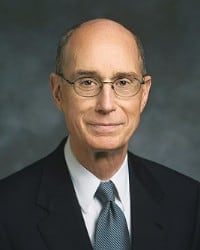
“When I find myself drawn away from my priesthood duties by other interests and when my body begs for rest, I give to myself this rallying cry: ‘Remember Him.’ The Lord is our perfect example of diligence in priesthood service. He is our captain. He called us. He goes before us. He chose us to follow Him and bring others with us. This evening I remember Him, and it stirs my heart. This is the Saturday night before Easter Sunday, when we remember His resurrection. I remember His example in the days before. Out of love for His father and for us, He allowed Himself to suffer beyond the capacity of mortal man.”
| Act in All Diligence (April 2010)

“We can change our behavior. Our very desires can change. How? There is only one way. True change—permanent change—can come only through the healing, cleansing, and enabling power of the Atonement of Jesus Christ. He loves you—each of you! He allows you to access His power as you keep His commandments, eagerly, earnestly, and exactly. It is that simple and certain. The gospel of Jesus Christ is a gospel of change!”
| Decisions for Eternity
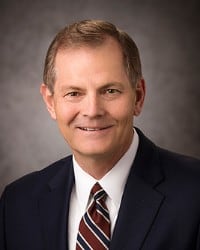
“The miracle of the Atonement can make up for imperfections in our performance.”

“It is hard to know when we have done enough for the Atonement to change our natures and so qualify us for eternal life. And we don’t know how many days we will have to give the service necessary for that mighty change to come. But we know that we will have days enough if only we don’t waste them.”
| "This Day," Conference April 2007

“The Savior’s message was essential to our salvation, but his personal exposition of it was not. President J. Reuben Clark Jr. gave this caution: “Brethren, it is all right to speak of the Savior and the beauty of his doctrines, and the beauty of the truth. But remember, and this is the thing I wish you . . . [to] always carry with you, the Savior is to be looked at as the Messiah, the Redeemer of the world. His teachings were ancillary and auxiliary to that great fact.”
| The Infinite Atonement
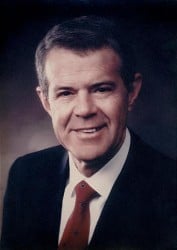
“Essential to receiving divine forgiveness are personal, individual recognition and acceptance of our Father’s mercy, made available to us by the atoning sacrifice of Jesus Christ and a renewed covenant to obey the principles of the gospel.”
| "Divine Forgiveness", Ensign, Nov. 1993, 84

“The Savior was no ivory-tower observer, no behind-the-lines captain… The Savior was a participant, a player, who not only understood our plight intellectually, but who felt our wounds because they became his wounds.”
| The Infinite Atonement

“The powers of the Atonement do not lie dormant until one sins and then suddenly spring forth to satisfy the needs of the repentant person. Rather, like the forces of gravity, they are everywhere present, exerting their unseen but powerful influence.”
| The Infinite Atonement

“There was something in the Savior’s descent that made possible man’s ascent.”
| The Infinite Atonement

“But how does the Atonement motivate, invite, and draw all men unto the Savior? What causes this gravitational pull– this spiritual tug? There is a certain compelling power that flows from righteous suffering– not indiscriminate suffering, not needless suffering, but righteous, voluntary suffering for another. Such suffering for another is the highest and purest form of motivation we can offer to those we love. Contemplate that for a moment: How does one change the attitude or the course of conduct of a loved one whose every step seems bent on destruction? If example fails to influence, words of kindness go unheeded, and the powers of logic are dismissed as chaff before the wind, then where does one turn…In the words of the missionary evangelist, E. Stanley Jones, suffering has “an intense moral appeal.” Jones once asked Mahatma Gandhi as he sat on a cot in an open courtyard of Yervavda jail, “‘Isn’t your fasting a species of coercion?’ ‘Yes,’ he said very slowly, ‘the same kind of coercion which Jesus exercises upon you from the cross.'” As Jones reflected upon that sobering rejoinder, he said: “I was silent. It was so obviously true that I am silent again every time I think of it. He was profoundly right. The years have clarified it. And I now see it for what it is: a very morally potent and redemptive power if used rightly. But it has to be used rightly.”
| The Infinite Atonement

“We often think that having faith in Christ means believing in his identity as the Son of God and the Savior of the world. But believing in Jesus’ identity as the Christ is only the first half of it. The other half is believing in his ability, in his power to cleanse and to save—to make unworthy sons and daughters worthy.”
| Believing Christ
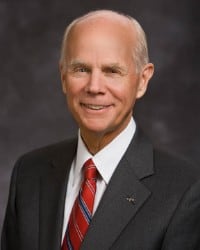
“Doesn’t the Atonement really begin to mean something to a person when he or she is trying to face down the challenges of living, whether they be temptations or limitations? The willingness to turn to the Savior, the opportunity of going to sacrament service on a Sunday, and really participating in the ordinance of the sacrament… listening to the prayers, partaking of those sacred emblems. Those are opportunities that really help us to come within the ambit of the Savior’s Atonement.”
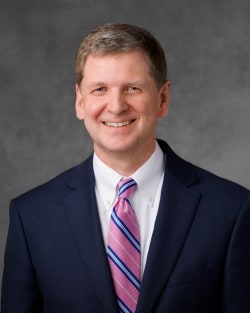
Although we do not fully understand the sacred mechanics by which the Savior’s atoning sacrifice heals and restores, we do know, that to ensure a righteous judgment, the Savior will clear away the underbrush of ignorance and the painful thorns of hurt caused by others. By this He assures that all God’s children will be given the opportunity, with unobscured vision, to choose to follow Him and accept the great plan of happiness.
| Ensuring a Righteous Judgment - General Conference 2020
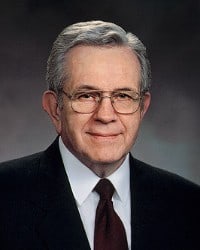
“Had agency come to man without the Atonement, it would have been a fatal gift.”
| "Atonement, Agency, Accountability," Conference April 1988
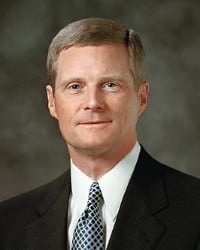
“I suspect that you and I are much more familiar with the redeeming power of the Atonement and not as associated with the enabling power of the Atonement. The Atonement is also for saints. I don’t think many of us get it. We mistakenly think that we have to make the journey from good to better all by ourselves. Individuals through faith in the Atonement receive strength and power to do good works that they could not do otherwise.”
| "The Atonement and the Journey of Mortality"

I suspect that you and I are much more familiar with the redeeming power of the Atonement and not as associated with the enabling power of the Atonement. The Atonement is also for saints. I don’t think many of us get it. We mistakenly think that we have to make the journey from good to better all by ourselves. Individuals through faith in the Atonement receive strength and power to do good works that they could not do otherwise.

“It was required, indeed it was central to the significance of the Atonement, that this perfect Son who had never spoken ill nor done wrong nor touched an unclean thing had to know how the rest of humankind—us, all of us—would feel when we did commit such sins. For His Atonement to be infinite and eternal, He had to feel what it was like to die not only physically but spiritually, to sense what it was like to have the divine Spirit withdraw, leaving one feeling totally, abjectly, hopelessly alone.”
| "None Were With Him," Conference April 2009
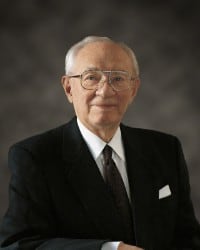
“Jesus Christ is the Son of God, who condescended to come into this world of misery, struggle, and pain to touch men’s hearts for good, to teach the way of eternal life, and to give Himself as a sacrifice for the sins of mankind. How different, how empty our lives would be without Him. How infinite is our opportunity for exaltation made possible through His redeeming love.”
| Stand a Little Taller
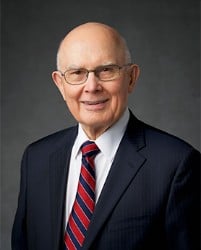
“Man unquestionably has impressive powers… But after all our obedience and good works, we cannot be saved from the effects of our sins without the grace extended by the atonement of Jesus Christ… Man cannot earn his own salvation.”
| "What Think Ye of Christ?", Ensign, November 1988


“We are frequently asked, “How do you persuade your young people and your older members to leave their schooling or their retirement to sacrifice in this way?” I have heard many give this explanation: “Knowing what my Savior did for me—His grace in suffering for my sins and in overcoming death so I can live again—I feel privileged to make the small sacrifice I am asked to make in His service. I want to share the understanding He has given me.” How do we persuade such followers of Christ to serve? As a prophet explained, “We [just] ask them.”
| "Sacrifice"

“First of all, if in the days ahead you not only see limitations in those around you but also find elements in your own life that don’t yet measure up to the messages you have heard this weekend, please don’t be cast down in spirit and don’t give up. The gospel, the Church, and these wonderful semiannual gatherings are intended to give hope and inspiration. They are not intended to discourage you. Only the adversary, the enemy of us all, would try to convince us that the ideals outlined in general conference are depressing and unrealistic, that people don’t really improve, that no one really progresses. And why does Lucifer give that speech? Because he knows he can’t improve, he can’t progress, that worlds without end he will never have a bright tomorrow. He is a miserable man bound by eternal limitations, and he wants you to be miserable too. Well, don’t fall for that. With the gift of the Atonement of Jesus Christ and the strength of heaven to help us, we can improve, and the great thing about the gospel is we get credit for trying, even if we don’t always succeed.”
| “Tomorrow the Lord Will Do Wonders among You”
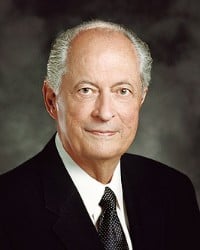
“May we take time this Christmas season to renew our covenants to follow the Savior and to do his will, just as he did the will of our Heavenly Father. As we do so, the words of King Benjamin’s people, recorded 125 years before the Savior’s birth, will be fulfilled for us today: ‘O have mercy, and apply the atoning blood of Christ that we may receive forgiveness of our sins, and our hearts may be purified; for we believe in Jesus Christ, the Son of God, who created heaven and earth, and all things; who shall come down among the children of men’ (Mosiah 4:2).
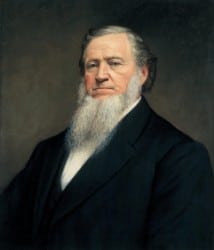
I will take the liberty of saying to every man and woman who wishes to obtain salvation through him (the Savior) that looking to him, only, is not enough: they must have faith in his name, character and atonement; and they must have faith in his father and in the plan of salvation devised and wrought out by the Father and the Son. What will this faith lead to? It will lead to obedience to the requirements of the Gospel; and the few words that I may deliver to my brethren and sisters and friends this afternoon will be with the direct view of leading them to God.
| Journal of Discourses, Vol.13, p. 56, from talk given July 18, 1869


When the challenges of mortality come, and they come for all of us, it may seem hard to have faith and hard to believe. At these times only faith in the Lord Jesus Christ and His Atonement can bring us peace, hope, and understanding. Only faith that He suffered for our sakes will give us the strength to endure to the end. When we gain this faith, we experience a mighty change of heart, and like Enos, we become stronger and begin to feel a desire for the welfare of our brothers and sisters. We pray for them, that they too will be lifted and strengthened through faith on the Atonement of our Savior Jesus Christ.
| “Finding Faith in the Lord Jesus Christ,” Ensign, Nov. 2004, p. 7

“The simple truth is that we cannot comprehend the Atonement and Resurrection of Christ and we will not adequately appreciate the unique purpose of His birth or His death-in other words, there is no way to truly celebrate Christmas or Easter- without understanding that there was an actual Adam and Eve who fell from an actual Eden, with all the consequences that fall carried with it.”
| Where Justice, Love, and Mercy Meet (April 2015)

Our only hope for true perfection is in receiving it as a gift from heaven–we can’t “earn” it. Thus, the grace of Christ offers us not only salvation from sorrow and sin and death but also salvation from our own persistent self-criticism.
| Be Ye Therefore Perfect--Eventually
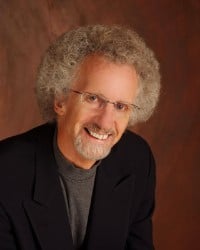
Power, no matter how well-intentioned, tends to cause suffering. Love, being vulnerable, absorbs it. In a point of convergence on a hill called Calvary, God renounced the one for the sake of the other.
| The Jesus I Never Knew by Philip Yancey

Had agency come to man without the Atonement, it would have been a fatal gift.
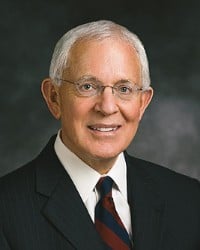
“The greatest act of courage and love in the history of mankind – Christ’s atoning sacrifice – was also the greatest act of humility and submissiveness. Some may wonder if those seeking to become humble must forever defer to the strongly held opinions and positions of others. Certainly the Savior’s life evidences that true humility is anything but subservience, weakness, or servility.”
| “To Walk Humbly with Thy God,” Ensign, May 2001, p. 10
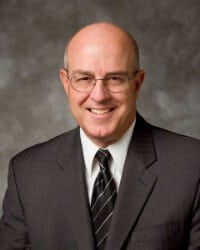
“The sweetest gift given at Christmas will always be the one our Savior Himself gave us: his perfect peace. He said: ‘Peace I leave with you, my peace I give unto you: not as the world giveth, give I unto you. Let not your heart be troubled, neither let it be afraid’ (John 14:27). Even in a world where peace seems far off, the Savior’s gift of peace can live in our hearts regardless of our circumstances. If we accept the Savior’s invitation to follow him, lasting fear is forever banished. Our future has been secured. These are the ‘good tidings of great joy, which shall be to all people.’ ‘Fear thou not,’ the prophet Isaiah reminded us, ‘for I am with thee: be not dismayed; for I am thy God: I will strengthen thee; yea, I will help thee; yea, I will uphold thee with the right hand of my righteousness’ (Isaiah 41:10).”

“True faith is focused in and on the Lord Jesus Christ and always leads to righteous action. The Prophet Joseph Smith taught that “faith [is] the first principle in revealed religion, and the foundation of all righteousness” and that it is also “the principle of action in all intelligent beings” (Lectures on Faith [1985], 1). Action alone is not faith in the Savior, but acting in accordance with correct principles is a central component of faith. Thus, “faith without works is dead” (James 2:20). The Prophet Joseph further explained that “faith is not only the principle of action, but of power also, in all intelligent beings, whether in heaven or on earth” (Lectures on Faith, 3). Thus, faith in Christ leads to righteous action, which increases our spiritual capacity and power. Understanding that faith is a principle of action and of power inspires us to exercise our moral agency in compliance with gospel truth, invites the redeeming and strengthening powers of the Savior’s Atonement into our lives, and enlarges the power within us whereby we are agents unto ourselves (see D&C 58:28).”
| Ask In Faith, April 2008 General Conference